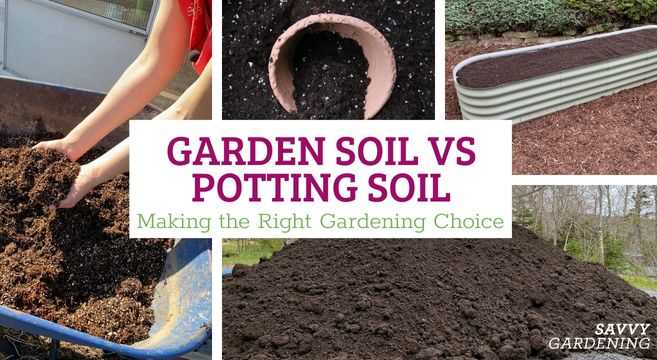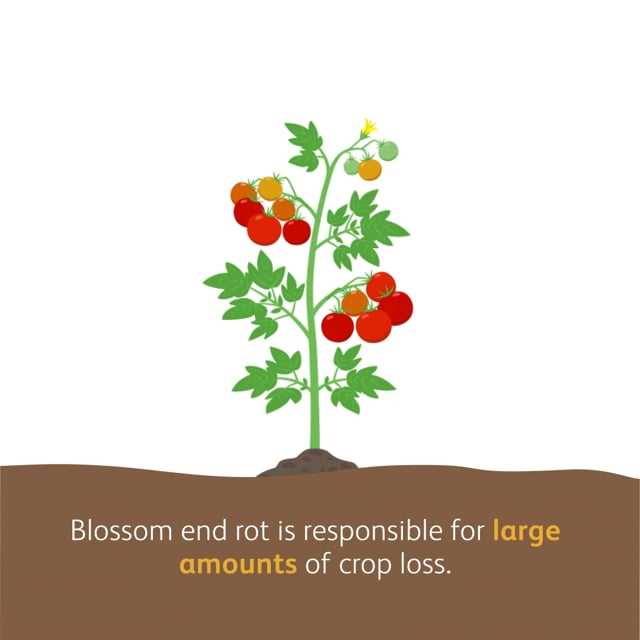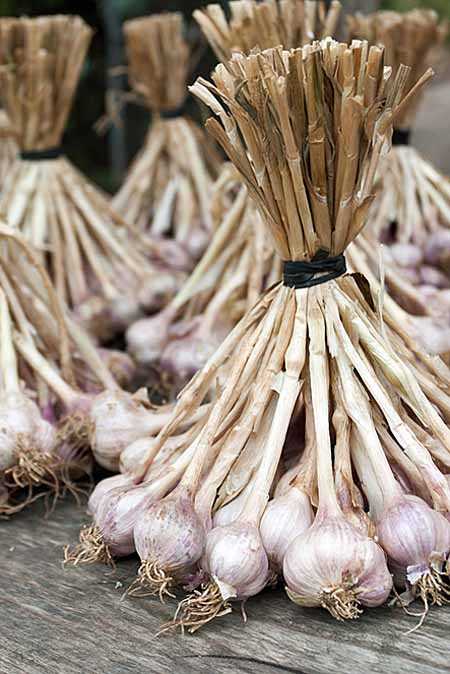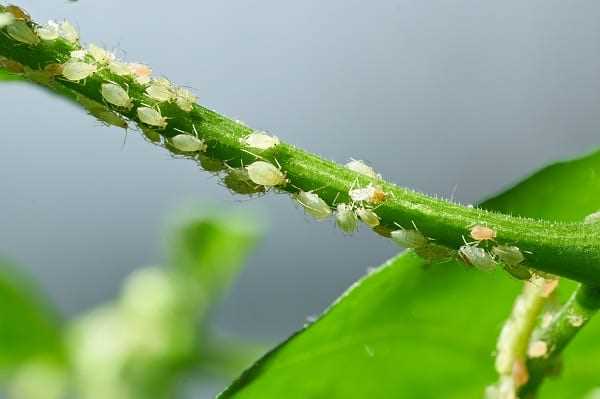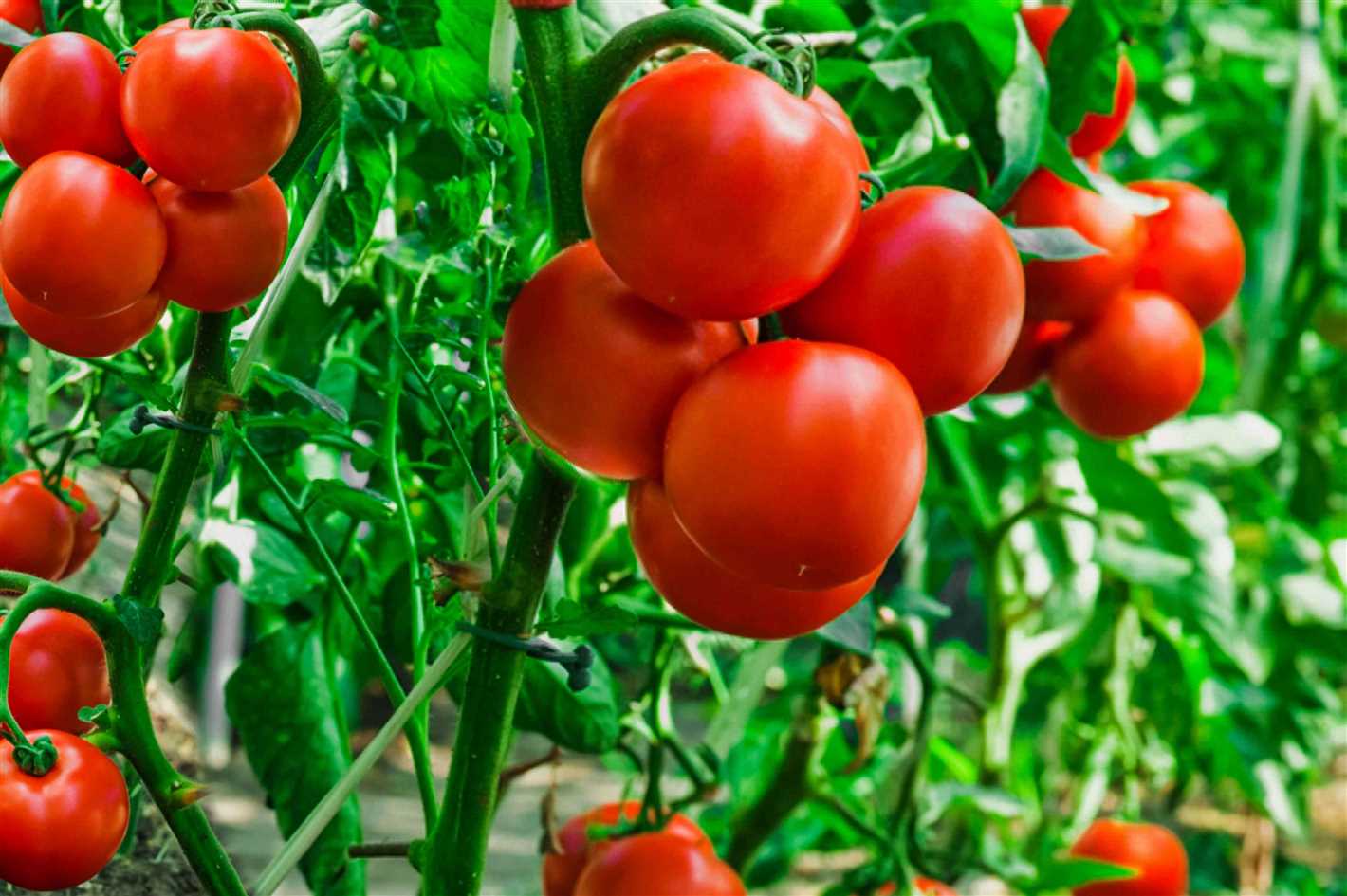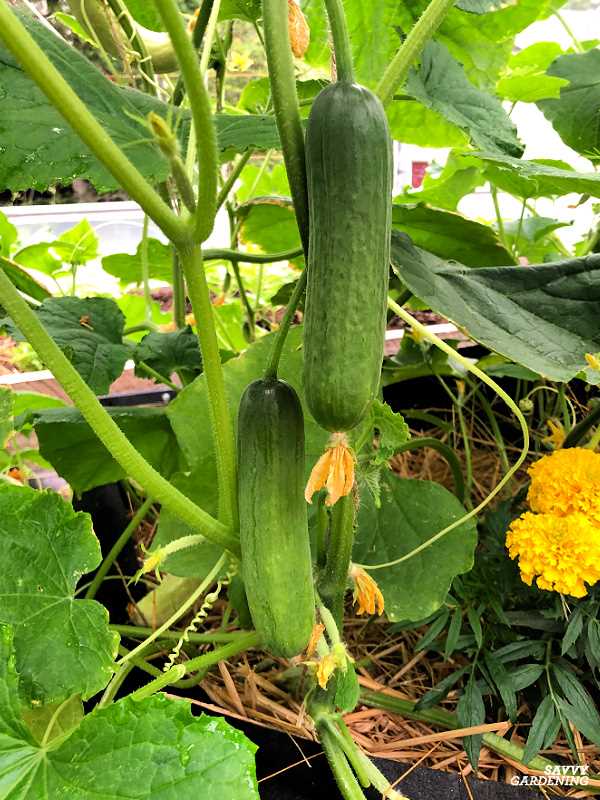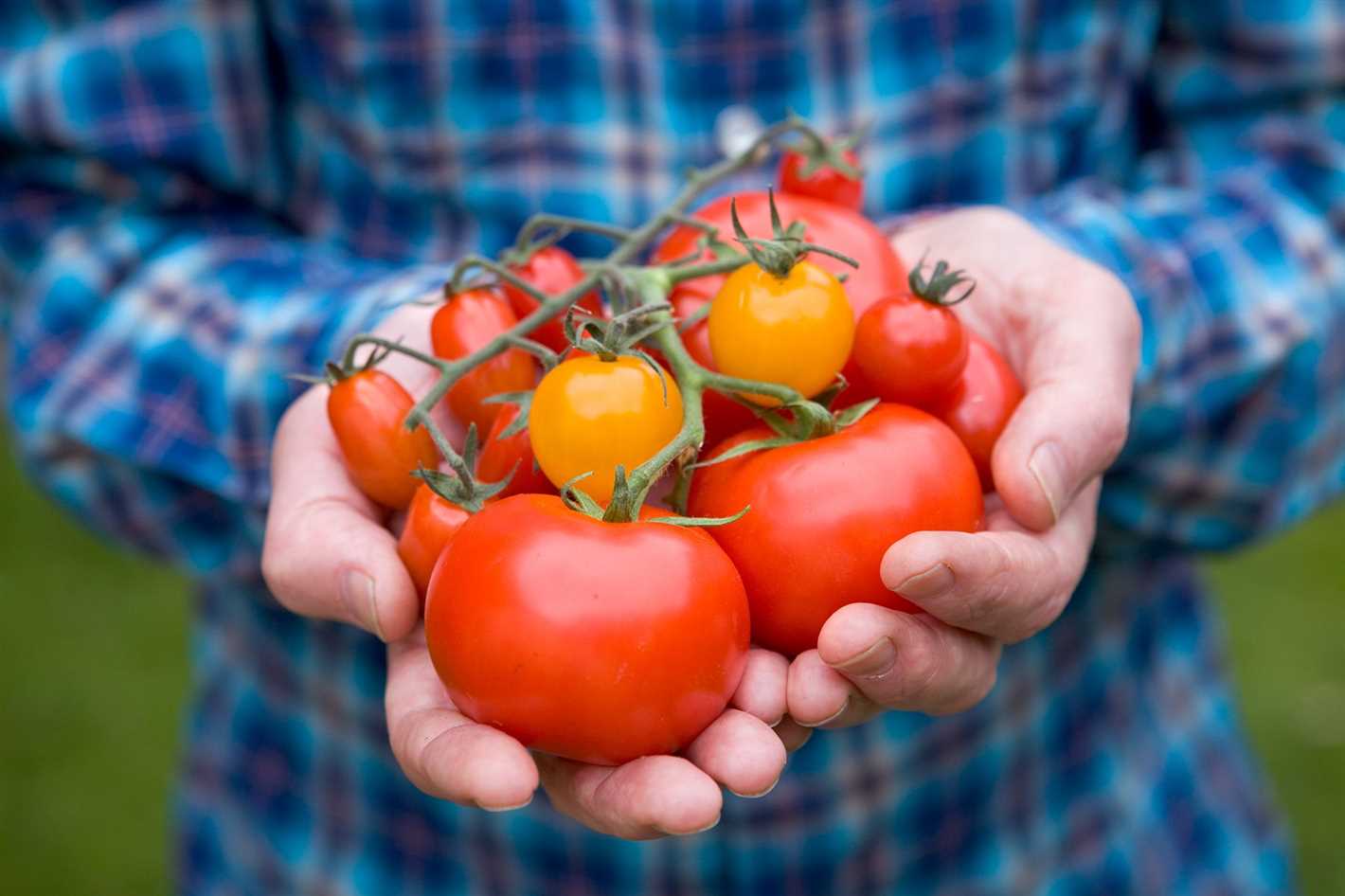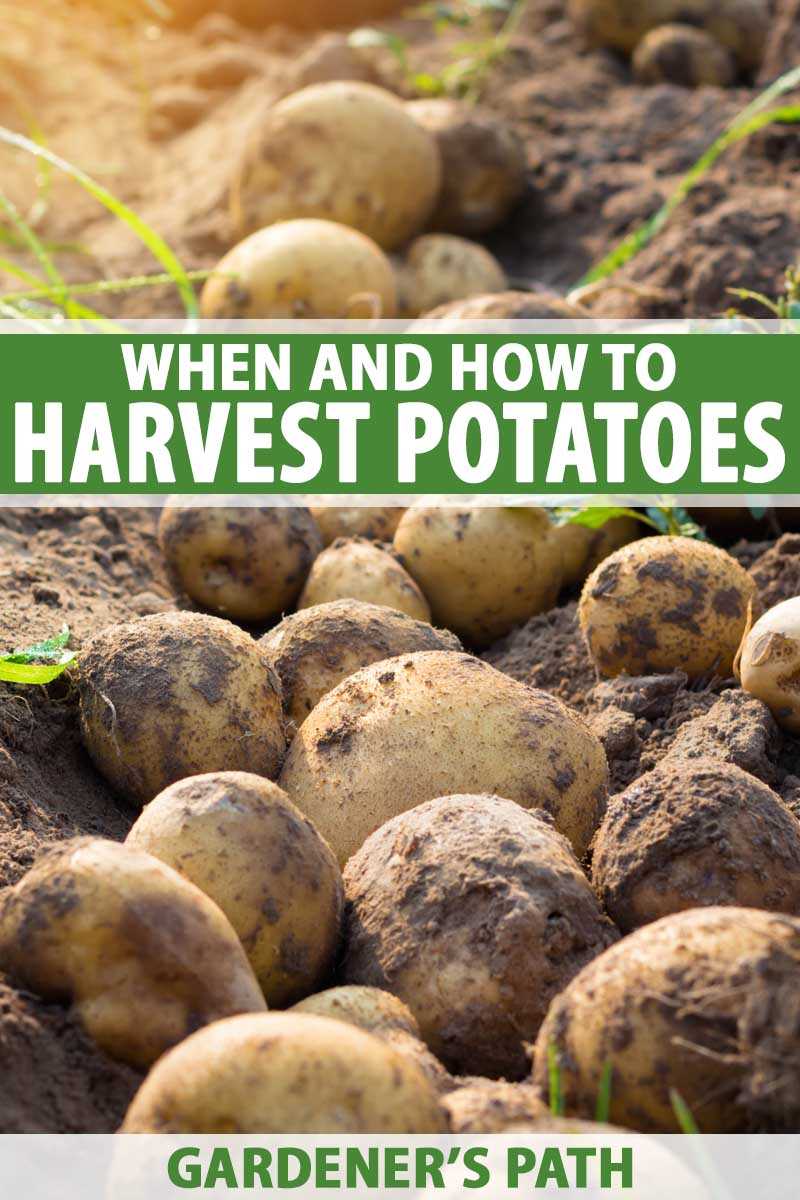- Companion Planting for Pest Control
- 1. Marigolds
- 2. Nasturtiums
- 3. Basil
- 4. Onions
- 5. Rosemary
- 6. Dill
- 7. Table summarizing companion plants for pest control
- Beneficial Insects as Biological Control Agents
- Predatory Insects
- Parasitic Wasps
- Nematodes
- Beneficial Insects Attractants
- Organic Fertilizers and Soil Amendments for Disease Resistance
- Compost
- Manure
- Cover Crops
- Bone Meal
- Seaweed and Fish Emulsion
- Conclusion
- Crop Rotation to Prevent Pests and Diseases
- Mulching Techniques for Weed and Pest Management
- Types of Mulch
- Applying Mulch
- Benefits of Mulching
- Conclusion
- Homemade Organic Sprays for Pest Control
- 1. Garlic Spray
- 2. Neem Oil Spray
- 3. Chili Pepper Spray
- 4. Soap Spray
- 5. Companion Planting
- 6. Table Salt Solution
- 7. Beer Trap
- Monitoring and Early Detection of Diseases and Pests
- 1. Regularly Check Your Plants
- 2. Keep an Eye out for Unusual Symptoms
- 3. Use Sticky Traps
- 4. Implement Crop Rotation
- 5. Keep a Garden Journal
- 6. Seek Help from Local Experts
- “Question-Answer”
- What are some natural methods to protect my vegetables from diseases and pests?
- How can I prevent diseases from spreading in my vegetable garden?
- Are there any natural ways to control pests in the vegetable garden?
- Is it possible to prevent pests without using chemicals?
- How can I protect my crops from common diseases?
- What are the benefits of using natural methods to protect my crops?
- “Video” 10 Organic Ways to Control Pests in the Garden
When it comes to growing a bountiful vegetable garden, one of the biggest challenges faced by gardeners is protecting their crops from diseases and pests. These unwanted visitors can quickly devastate an entire crop if not properly managed. While there are chemical pesticides and fungicides available on the market, many gardeners are turning to natural methods to maintain the health of their vegetable plants.
One natural method to fight diseases and pests is by promoting a healthy and diverse garden ecosystem. By creating an environment that is conducive to beneficial insects and animals, such as ladybugs, lacewings, and birds, gardeners can rely on these natural predators to keep pests under control. Introducing plants that attract these beneficial insects, such as marigolds and cosmos, can also help in reducing pest populations.
Another natural way to protect your crops is by practicing proper crop rotation and companion planting. Crop rotation involves moving plants to different areas of the garden each year to prevent the buildup of soil-borne diseases and pests. Companion planting is the strategic placement of compatible plants to maximize their growth and protect against pests. For example, planting basil near tomatoes can help deter pests like aphids and whitefly.
Besides these methods, gardeners can also make use of organic pest control solutions. Homemade sprays using ingredients like garlic, neem oil, and insecticidal soap can effectively control pests without harming beneficial insects. Additionally, using natural fertilizers and compost can help boost the overall health of your plants, making them more resistant to diseases and pests.
Companion Planting for Pest Control
Companion planting is an ancient technique that involves planting certain plants together to benefit each other in various ways. One of the benefits of companion planting is pest control. By strategically planting certain crops next to each other, you can naturally deter pests and reduce the need for chemical interventions.
1. Marigolds
Marigolds are known for their ability to repel a wide range of pests, including aphids, nematodes, and whiteflies. Planting marigolds around your vegetable garden can help protect your crops from these common pests. Additionally, their vibrant flowers can attract beneficial insects like ladybugs and lacewings, which feed on harmful insects.
2. Nasturtiums
Nasturtiums are another great companion plant for pest control. These plants exude a strong scent that repels a variety of pests, including aphids, cabbage loopers, and squash bugs. Planting nasturtiums near susceptible crops like tomatoes, cucumbers, and brassicas can help deter these pests and reduce the risk of infestation.
3. Basil
Basil not only adds flavor to your dishes but can also act as a natural pest control measure. The strong scent of basil repels mosquitoes, flies, and aphids. Planting basil near your vegetable garden can help keep these pests at bay and protect your crops.
4. Onions
Onions are a versatile vegetable that also has insect-repellent properties. They can deter a wide range of pests, including aphids, carrot flies, and cabbage worms. Planting onions alongside susceptible crops like carrots, lettuce, and brassicas can help prevent pest infestations.
5. Rosemary
Rosemary is not only a delicious herb but can also act as a natural pest deterrent. Its strong scent repels a variety of pests, including mosquitoes, carrot flies, and cabbage loopers. Planting rosemary near your vegetable garden can help protect your crops from these pests.
6. Dill
Dill is a versatile herb that attracts beneficial insects like ladybugs and parasitic wasps, which prey on harmful pests like aphids and cabbage worms. Planting dill near susceptible crops can help naturally control these pests and promote a healthy garden ecosystem.
7. Table summarizing companion plants for pest control
| Companion Plant | Pests Deterred |
|---|---|
| Marigolds | Aphids, nematodes, whiteflies |
| Nasturtiums | Aphids, cabbage loopers, squash bugs |
| Basil | Mosquitoes, flies, aphids |
| Onions | Aphids, carrot flies, cabbage worms |
| Rosemary | Mosquitoes, carrot flies, cabbage loopers |
| Dill | Aphids, cabbage worms |
By incorporating companion planting techniques like these into your vegetable garden, you can naturally deter pests and reduce the need for harsh chemical pesticides. Not only will this promote a healthier garden ecosystem, but it will also result in safer, more nutritious crops for you and your family to enjoy.
Beneficial Insects as Biological Control Agents
Insects are a major component of the natural world, and many of them can play a beneficial role in controlling pests and diseases in the vegetable garden. These beneficial insects are known as biological control agents, as they help to keep the population of harmful insects in check.
Predatory Insects
Predatory insects feed on other insects, including many garden pests. They can help to control pests such as aphids, caterpillars, mites, and beetles. Ladybugs, lacewings, and praying mantises are some examples of predatory insects that can be introduced into the garden to control pest populations. These insects can be purchased from gardening stores or attracted to the garden by providing them with a suitable habitat, such as a variety of flowering plants.
Parasitic Wasps
Parasitic wasps are another type of beneficial insect that can be used for biological control in the garden. These wasps lay their eggs inside the bodies of other insects, such as caterpillars or aphids. Once the eggs hatch, the larvae feed on the host insect, eventually killing it. Parasitic wasps can be purchased or attracted to the garden by planting pollen and nectar-rich flowers.
Nematodes
Nematodes are microscopic roundworms that can be used to control soil-dwelling pests such as grubs, weevils, and cutworms. These nematodes invade the bodies of the pests and release bacteria that kill them. Nematodes are available as a powder or liquid form and can be applied to the soil using a watering can or sprayer.
Beneficial Insects Attractants
In order to attract beneficial insects to your garden, it is important to provide them with suitable habitats and food sources. Planting a variety of flowers that provide pollen and nectar can attract a range of beneficial insects, including bees and parasitic wasps. Additionally, avoiding the use of chemical pesticides can help to preserve the populations of beneficial insects in the garden.
By promoting the presence of beneficial insects in your vegetable garden, you can reduce the need for chemical pesticides and create a more balanced and sustainable ecosystem. These natural pest control methods can help to protect your crops and promote a healthy and thriving garden.
Organic Fertilizers and Soil Amendments for Disease Resistance
The health and vitality of your vegetable garden starts with the soil. By using organic fertilizers and soil amendments, you can improve the nutrient content and structure of your soil, which in turn can help your plants develop strong immune systems and resist diseases.
Compost
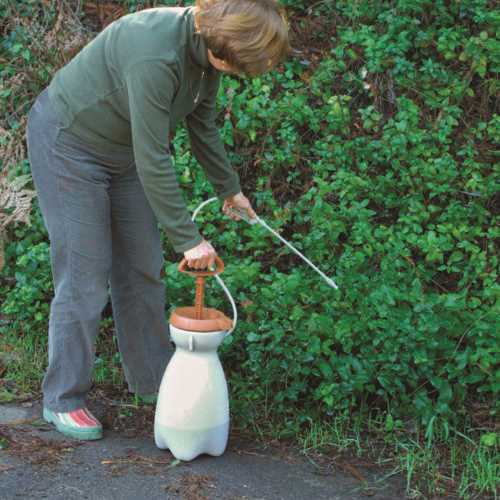
Compost is a natural, nutrient-rich fertilizer and soil amendment that can significantly improve the health of your soil. It contains a balanced mix of organic matter, including plant and animal wastes, that provides essential nutrients to your plants. By adding compost to your garden beds, you can enhance the soil structure, increase water retention, and promote a healthy balance of microorganisms, all of which contribute to disease resistance.
Manure
Well-aged manure, such as composted cow or chicken manure, can be an excellent source of nutrients and organic matter for your soil. Manure contains high levels of nitrogen, phosphorus, and potassium, which are essential for plant growth and overall health. It also improves soil structure and enhances microbial activity, both of which play vital roles in disease prevention.
Cover Crops
Planting cover crops, such as clover or legumes, is another effective way to boost soil fertility and improve disease resistance. Cover crops work by fixing nitrogen in the soil, which can be used by subsequent vegetable crops. They also help prevent soil erosion, suppress weeds, and attract beneficial insects that prey on harmful pests. By enriching the soil and creating a diverse ecosystem, cover crops contribute to a healthier, more resilient garden.
Bone Meal
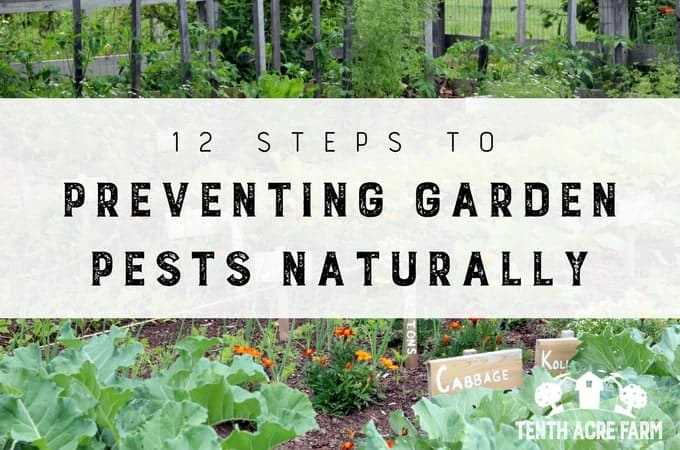
Bone meal is a natural fertilizer made from ground-up animal bones. It is an excellent source of phosphorus, which is essential for root development, flowering, and fruiting. Phosphorus also plays a crucial role in disease resistance by strengthening plants’ immune systems. By incorporating bone meal into your garden soil, you can provide your plants with the necessary phosphorus to ward off diseases.
Seaweed and Fish Emulsion
Seaweed and fish emulsion are popular organic fertilizers that provide essential nutrients and trace minerals to the soil. They are particularly rich in potassium, which helps plants build resistance against diseases and stress. Seaweed and fish emulsion also improve soil structure, increase water retention, and enhance microbial activity, all of which contribute to disease resistance.
Conclusion
Using organic fertilizers and soil amendments is an effective and sustainable way to promote disease resistance in your vegetable garden. Compost, manure, cover crops, bone meal, seaweed, and fish emulsion are all natural options that can improve soil health, increase nutrient availability, and strengthen plants’ immune systems. By incorporating these organic materials into your gardening practices, you can create a resilient and disease-resistant garden that thrives year after year.
Crop Rotation to Prevent Pests and Diseases
One of the most effective natural methods for preventing pests and diseases in the vegetable garden is crop rotation. Crop rotation involves changing the location of different crops in your garden beds each year. This helps to disrupt the life cycles of pests and diseases, reducing their populations and preventing the build-up of specific problems.
How does crop rotation work?
Crop rotation works by preventing pests and diseases from finding a permanent home in your garden. By moving crops to different areas each year, you make it harder for pests and diseases to locate and infest their preferred host plants. This break in the life cycle can significantly reduce the populations of pests and diseases over time.
Creating a crop rotation plan:
To implement a successful crop rotation plan, follow these steps:
- Identify plant families: Group your crops into plant families. This is important because pests and diseases often attack related plants.
- Create a rotation schedule: Map out a rotation schedule for your garden beds, following a three to four-year cycle.
- Rotate crops by family: Each year, move crops to a different garden bed, ensuring that you do not plant the same family in the same bed for at least three years.
- Intercropping and cover cropping: Consider intercropping and cover cropping techniques to further disrupt pest and disease life cycles.
Benefits of crop rotation:
- Pest and disease prevention: Crop rotation reduces the likelihood of pests and diseases establishing themselves in your garden.
- Improved soil health: Different crops have different nutrient requirements. By rotating crops, you can prevent nutrient depletion and improve overall soil health.
- Reduced reliance on chemicals: By implementing natural pest and disease prevention methods like crop rotation, you can reduce the need for chemical pesticides and fungicides.
- Diversified garden: Crop rotation allows you to grow a wide variety of crops, increasing the biodiversity of your garden.
Conclusion:
Crop rotation is a valuable tool in the fight against pests and diseases in the vegetable garden. By implementing a rotation schedule and following best practices, you can protect your crops naturally while improving overall garden health.
Mulching Techniques for Weed and Pest Management
Mulching is a highly effective technique for managing weeds and pests in the vegetable garden. It involves covering the soil around plants with a layer of organic materials, such as straw, grass clippings, or compost. Mulching provides numerous benefits to the garden, including suppressing weed growth, conserving moisture, regulating soil temperature, and improving soil fertility.
Types of Mulch
There are several types of mulch that can be used for weed and pest management:
- Straw: Straw mulch is one of the most commonly used mulches in vegetable gardens. It is lightweight, easy to spread, and decomposes relatively slowly. Straw mulch can help prevent weed growth and retain moisture in the soil.
- Grass clippings: Grass clippings can be used as mulch in the vegetable garden. They are readily available and can be applied in a thick layer to help suppress weed growth. However, be sure to use grass clippings that have not been treated with herbicides.
- Compost: Compost can also be used as mulch in the vegetable garden. It not only helps suppress weeds but also provides nutrients to the soil as it slowly decomposes. Apply a layer of compost around plants, being careful not to cover the stems or foliage.
Applying Mulch
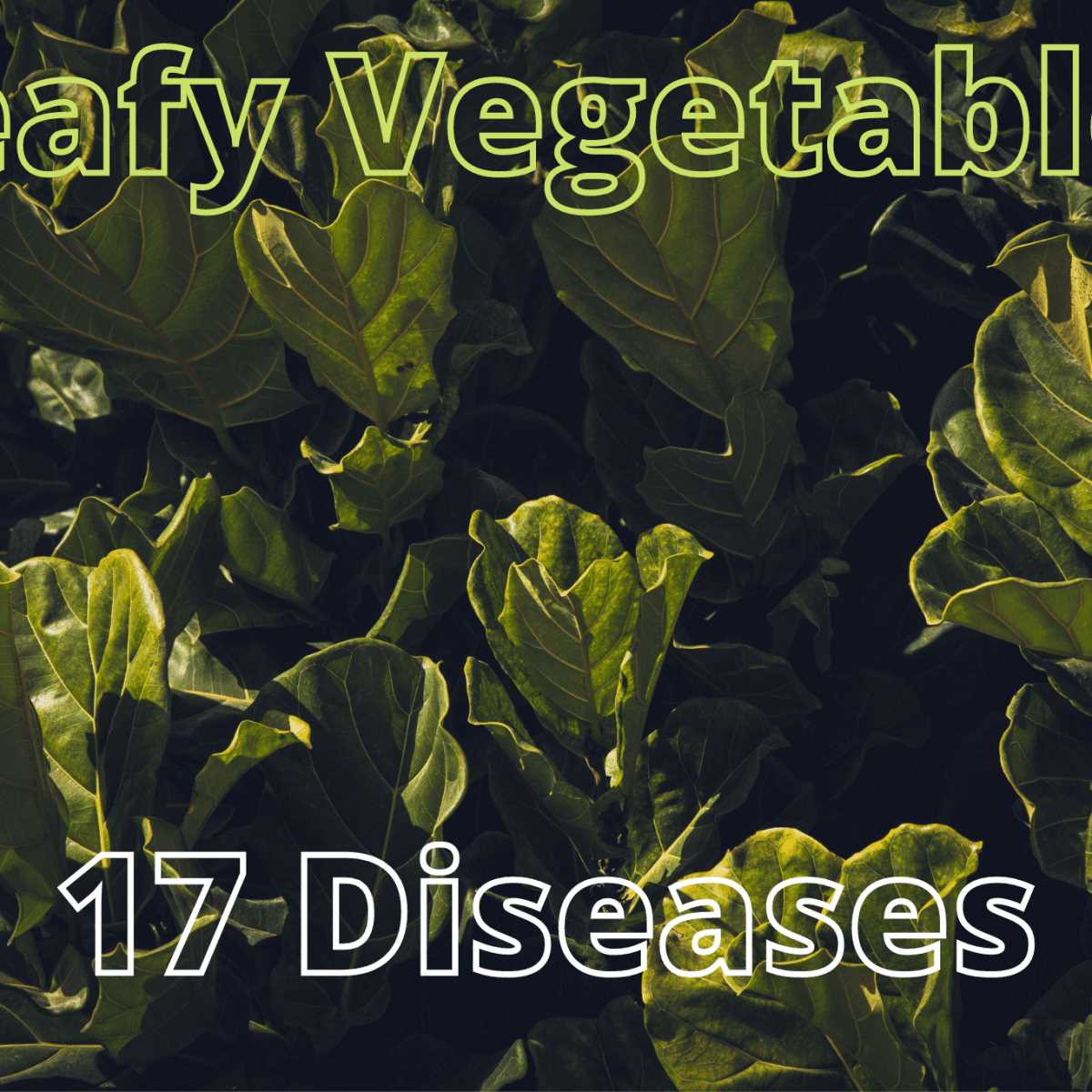
When applying mulch to the vegetable garden, follow these guidelines:
- Clean the garden bed by removing any existing weeds or debris.
- Apply a layer of mulch around plants, making sure to leave a small gap around the stem to prevent moisture buildup and rot.
- Spread the mulch evenly, aiming for a thickness of 2-4 inches.
- Refresh the mulch as needed, especially during the growing season, to maintain its effectiveness.
Benefits of Mulching
Mulching provides several benefits for weed and pest management in the vegetable garden:
- Weed suppression: The layer of mulch helps prevent weed seeds from germinating and growing, reducing the need for manual weeding.
- Moisture conservation: The mulch acts as a barrier, preventing moisture from evaporating from the soil. This helps to conserve water and keeps the plants adequately hydrated.
- Soil temperature regulation: Mulch helps regulate soil temperature by insulating it from extreme heat or cold. This is particularly beneficial for plants that are sensitive to temperature fluctuations.
- Improved soil fertility: As the mulch decomposes, it adds organic matter to the soil, improving its fertility and nutrient content. This can promote healthy plant growth and productivity.
Conclusion
Mulching is a natural and effective method for managing weeds and pests in the vegetable garden. By choosing the right type of mulch and applying it correctly, gardeners can create a healthier and more productive garden. Embracing mulching techniques can help reduce the need for synthetic pesticides and promote sustainable gardening practices.
Homemade Organic Sprays for Pest Control
Chemical pesticides can be harmful to the environment and your health, so why not try some natural homemade sprays to control pests in your vegetable garden? Here are a few organic sprays you can easily make at home:
1. Garlic Spray
Mix 2-3 crushed garlic cloves with 1 quart of water. Let the mixture sit overnight, then strain it. Spray the mixture onto the leaves and stems of your plants to repel pests like aphids and caterpillars.
2. Neem Oil Spray
Neem oil is a natural insecticide and fungicide. Mix 1 tablespoon of neem oil with 1 quart of water and a few drops of dish soap. Spray this mixture onto your plants to control pests like mites, aphids, and whiteflies.
3. Chili Pepper Spray
Combine 1 tablespoon of chili pepper flakes or powder with 1 quart of water. Let the mixture steep overnight, then strain it. Spray the solution onto your plants to deter pests like ants, beetles, and caterpillars.
4. Soap Spray
Mix 1 tablespoon of liquid dish soap with 1 quart of water. Spray this mixture onto your plants to control pests like aphids, mites, and thrips. The soap suffocates the pests.
5. Companion Planting
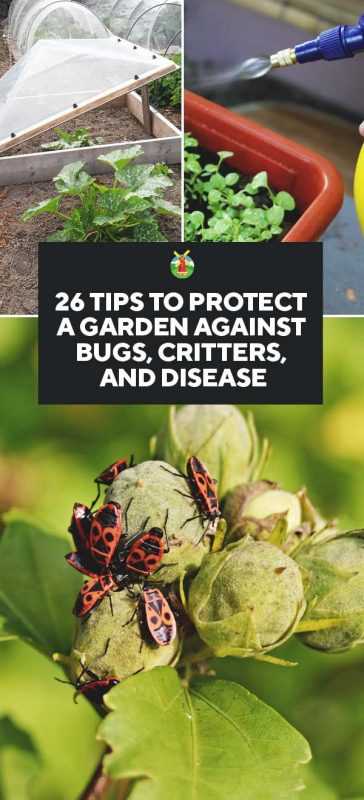
Consider planting pest-repellent plants near your vegetables. For example, marigolds repel aphids and nematodes, while basil repels flies and mosquitoes. This natural pest control method can help keep pests away from your crops.
6. Table Salt Solution
Mix 2 tablespoons of table salt with 1 gallon of water. Spray this solution onto weeds growing near your vegetable garden to kill them without using harmful chemicals.
7. Beer Trap
Bury a container, such as a small yogurt cup, in the ground near your plants. Fill the container with beer. Slugs and snails will be attracted to the beer and drown in the trap.
Remember to always test these sprays on a small area of your plants before applying them to the entire garden. Also, try to avoid spraying during hot weather or in direct sunlight to prevent damage to your plants.
These homemade organic sprays can help you control pests in your vegetable garden without resorting to harmful chemicals. Give them a try and enjoy a healthy, pest-free crop!
Monitoring and Early Detection of Diseases and Pests
One of the most important steps in protecting your crops from diseases and pests is monitoring and early detection. By regularly inspecting your vegetable garden and being proactive in identifying potential issues, you can take the necessary steps to prevent an outbreak before it causes significant damage. Here are some tips on how to effectively monitor and detect diseases and pests in your garden:
1. Regularly Check Your Plants
Make it a habit to inspect your plants regularly, at least once a week. Look for any signs of disease or pests, such as spots on leaves, discoloration, wilting, leaf damage, or holes. Examine the undersides of leaves where pests often hide. Pay special attention to young and vulnerable plants, as they are more susceptible to infections.
2. Keep an Eye out for Unusual Symptoms
Learn to recognize the early symptoms of common diseases and pests in your area. Familiarize yourself with the appearance of common plant diseases, like powdery mildew, leaf spots, or blights. Look for any signs of infestation or damage caused by pests, such as chewed leaves, webbing, or the presence of insects. If you notice any unusual symptoms, take action immediately to prevent the problem from spreading.
3. Use Sticky Traps
Place sticky traps in your garden to monitor and catch flying insects. These traps can help you identify the presence of pests like aphids, whiteflies, or thrips. Hang the traps near your plants, especially around the perimeter of your garden. Check the traps regularly, and if you notice an increase in the number of trapped insects, take measures to control the population before it gets out of hand.
4. Implement Crop Rotation
Rotate your vegetable crops each year to prevent the buildup of diseases and pests in the soil. Different plants attract different pests, so by rotating crops, you can disrupt pest lifecycles and reduce the likelihood of re-infestation. Additionally, certain plants have natural pest-repellent properties, so including them in your crop rotation plan can help in pest control.
5. Keep a Garden Journal
Maintain a garden journal to record observations, including any signs of diseases, pests, or weather conditions that may affect your plants. Note the specific crops affected and the steps you take to address the issue. This will help you track patterns and better understand the specific challenges faced by your garden. It can also serve as a reference for future seasons when planning preventive measures.
6. Seek Help from Local Experts
If you are unsure about the identification of a disease or pest infestation, seek advice from local agricultural extension offices, gardening clubs, or experienced gardeners in your area. They can provide valuable guidance on how to effectively diagnose and manage specific issues based on regional conditions.
Remember, early detection is crucial in preventing the spread of diseases and the damage caused by pests. By regularly monitoring your vegetable garden and promptly addressing any issues, you can protect your crops and ensure a successful harvest.
“Question-Answer”
What are some natural methods to protect my vegetables from diseases and pests?
There are several natural methods you can use to protect your vegetables from diseases and pests. One method is companion planting, where you plant certain vegetables together to deter pests. Another method is using organic sprays and insecticides made from natural ingredients. Additionally, you can use physical barriers such as row covers or netting to keep pests out.
How can I prevent diseases from spreading in my vegetable garden?
To prevent diseases from spreading in your vegetable garden, there are a few steps you can take. First, practice crop rotation by planting different vegetables in different areas each year. This helps break the disease cycle. Second, keep your garden clean by removing any diseased plants or plant debris. Finally, water your plants in the morning and avoid getting the foliage wet, as wet conditions can promote disease development.
Are there any natural ways to control pests in the vegetable garden?
Yes, there are several natural ways to control pests in the vegetable garden. One method is attracting beneficial insects such as ladybugs or lacewings, which will eat pests like aphids. You can do this by planting flowers that attract these insects. Another method is using organic pest control products such as neem oil or insecticidal soap. These products are derived from natural ingredients and are safe to use in the garden.
Is it possible to prevent pests without using chemicals?
Yes, it is possible to prevent pests in the vegetable garden without using chemicals. In addition to attracting beneficial insects and using organic pest control products, there are other methods you can use. For example, you can handpick pests off your plants or use traps to catch them. You can also use physical barriers such as netting or row covers to keep pests out.
How can I protect my crops from common diseases?
To protect your crops from common diseases, there are a few steps you can take. First, choose disease-resistant varieties when planting your vegetables. These varieties are bred to be more resistant to common diseases. Second, practice good gardening practices such as crop rotation and clean gardening practices. Finally, monitor your plants regularly for any signs of disease and take immediate action if necessary, such as removing infected plants.
What are the benefits of using natural methods to protect my crops?
Using natural methods to protect your crops has several benefits. First, it is better for the environment since you are not using chemicals that can harm beneficial insects or pollute the soil and water. Second, it is safer for you and your family since you are not exposing yourself to potentially harmful chemicals. Third, it can save you money since many natural pest control methods can be made at home using inexpensive ingredients.
